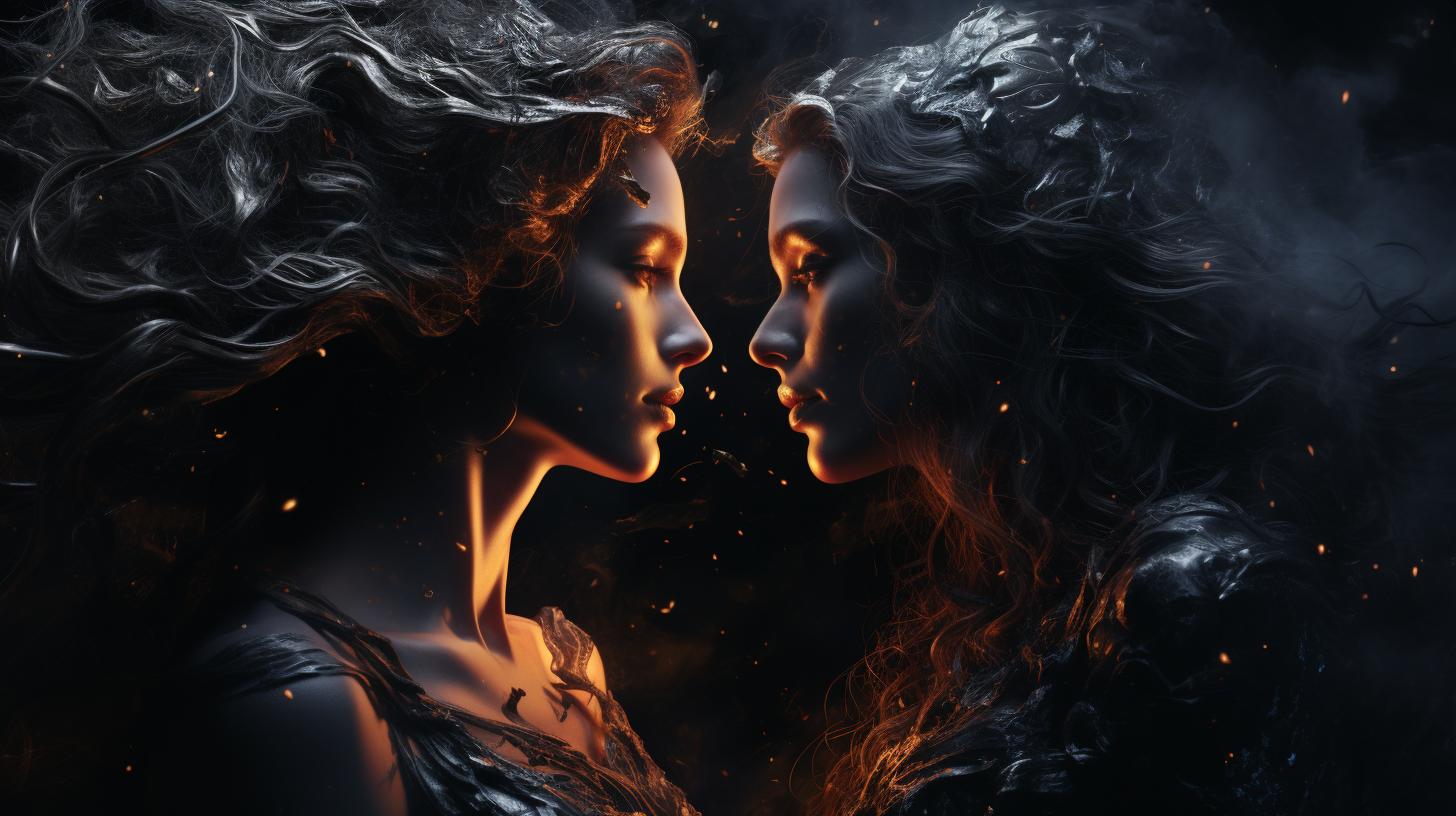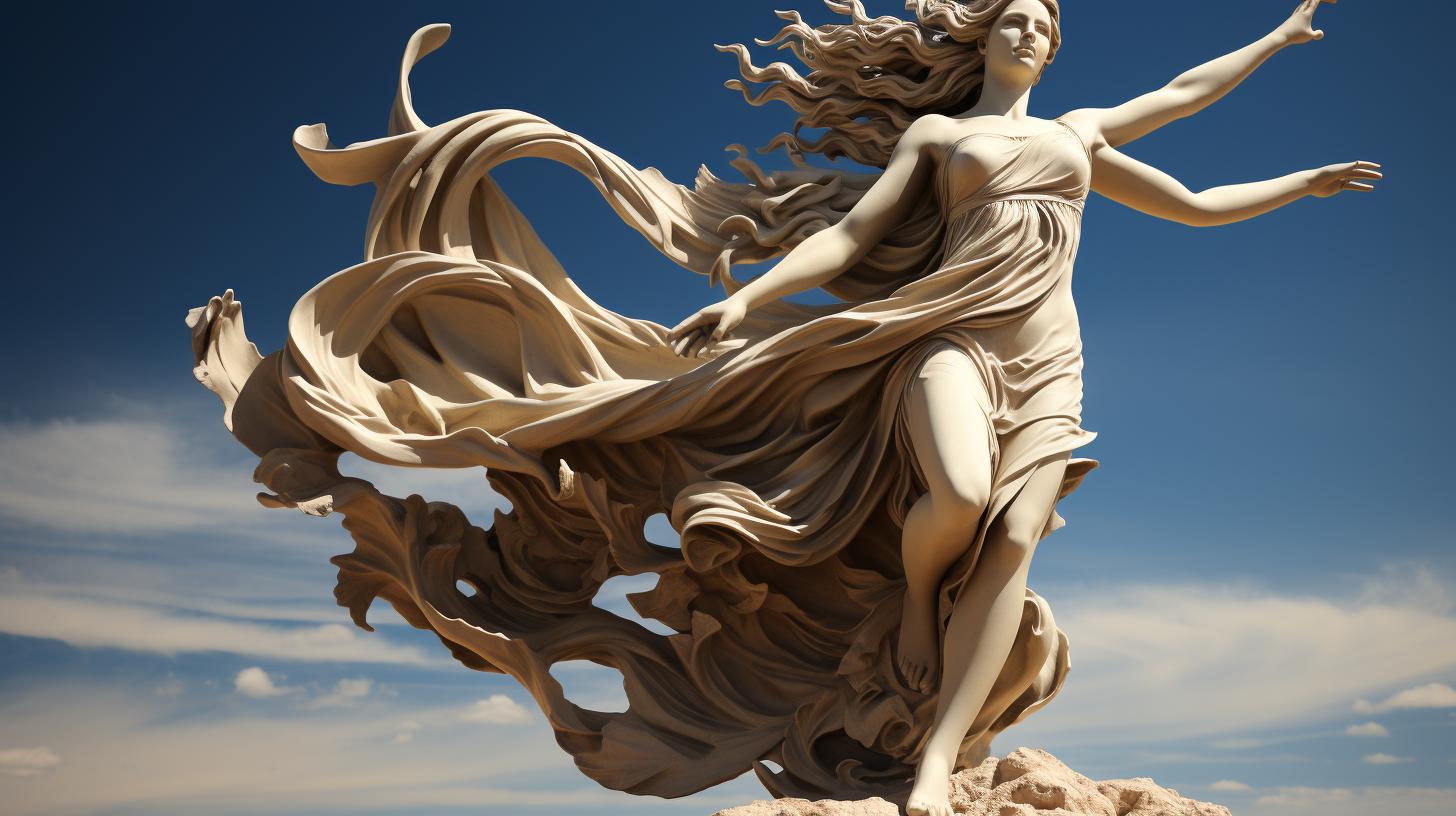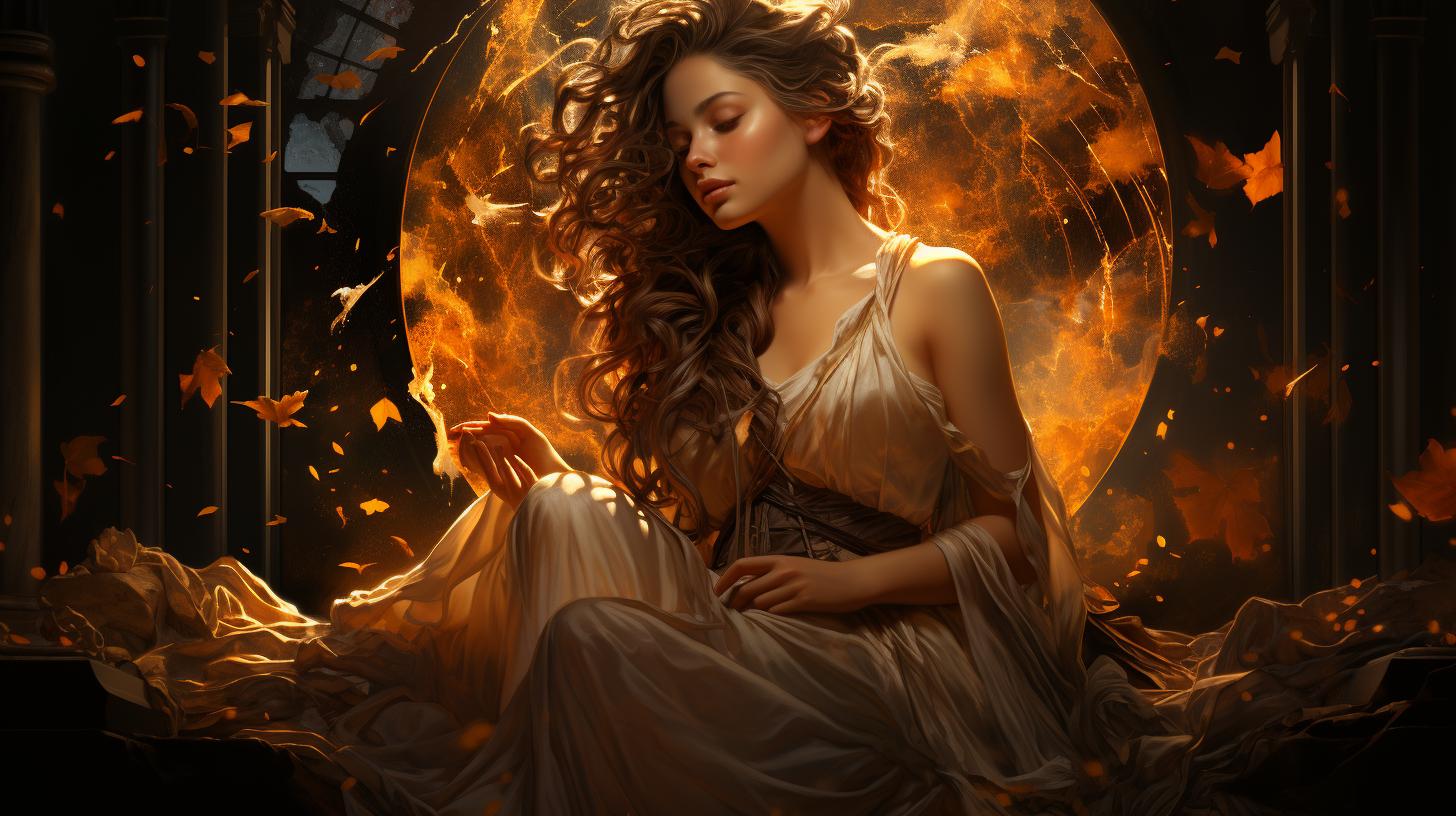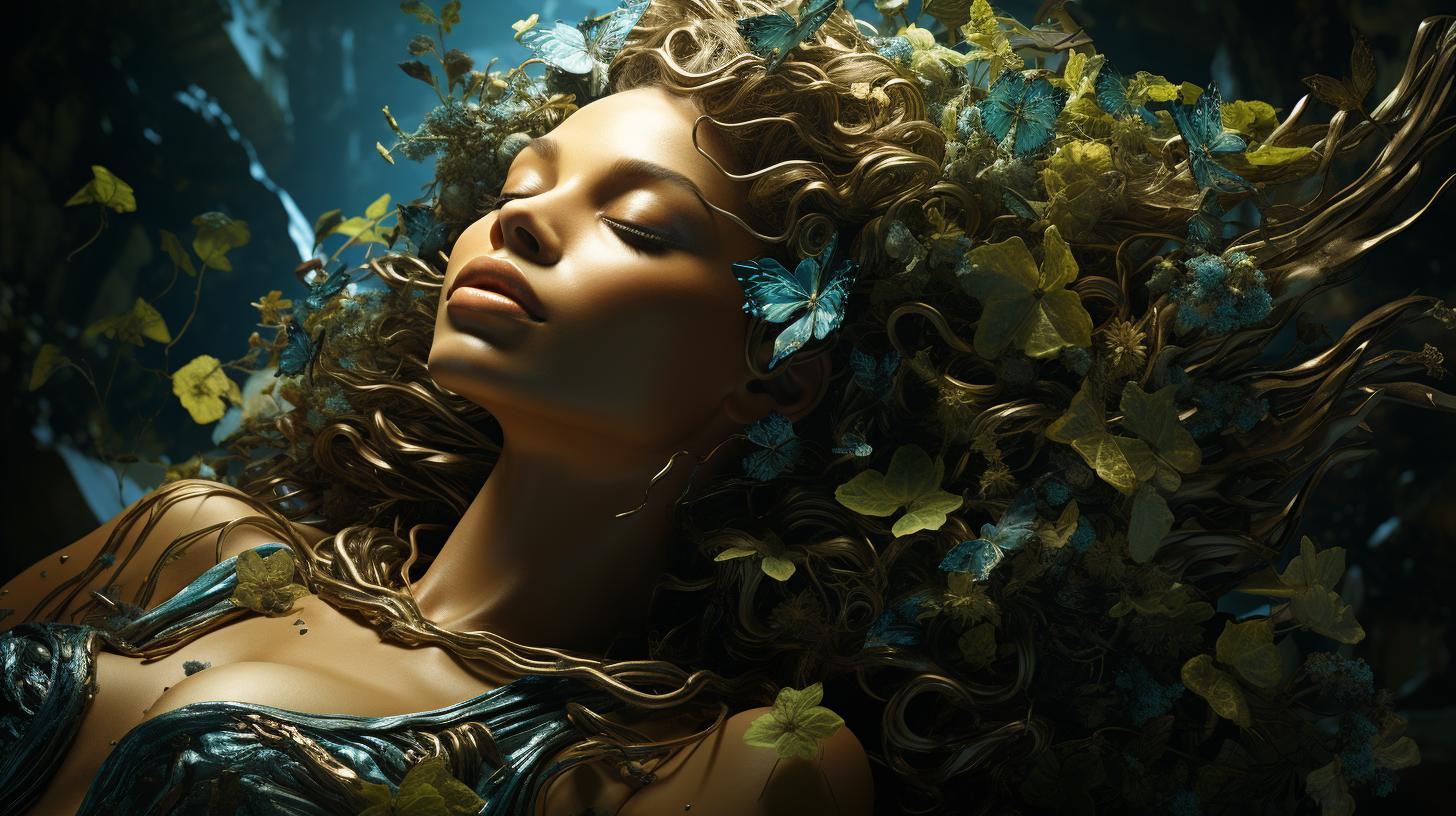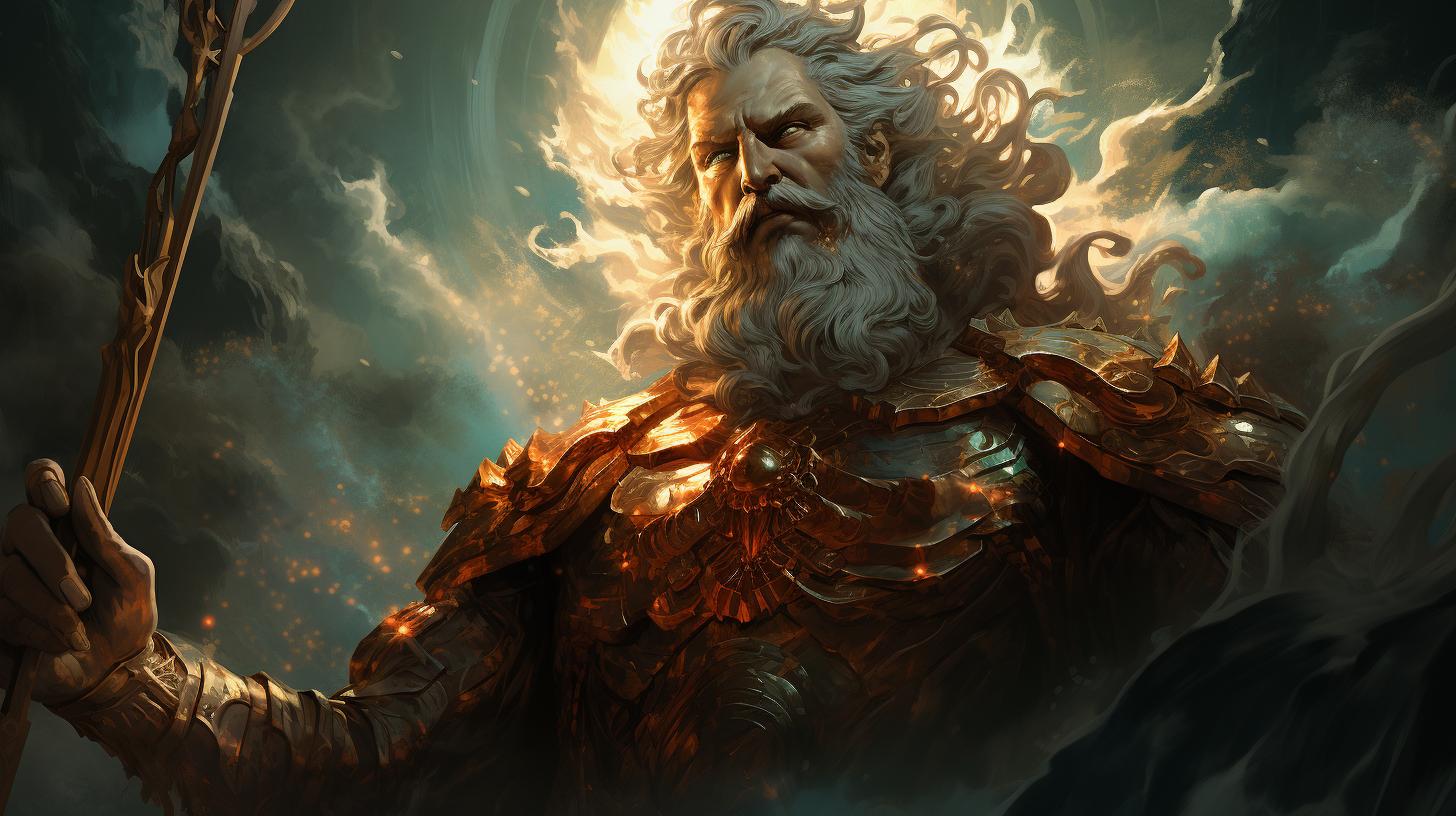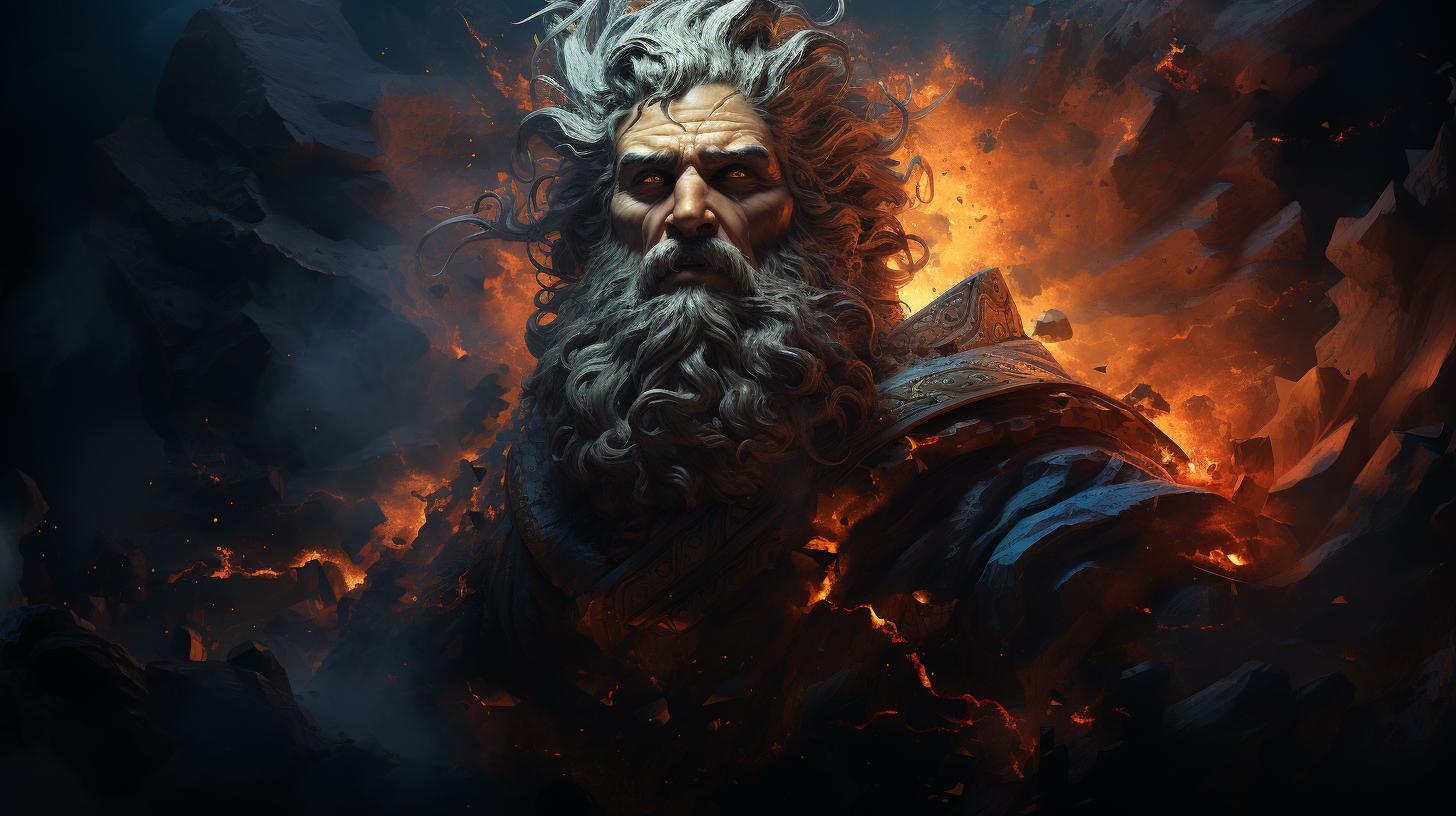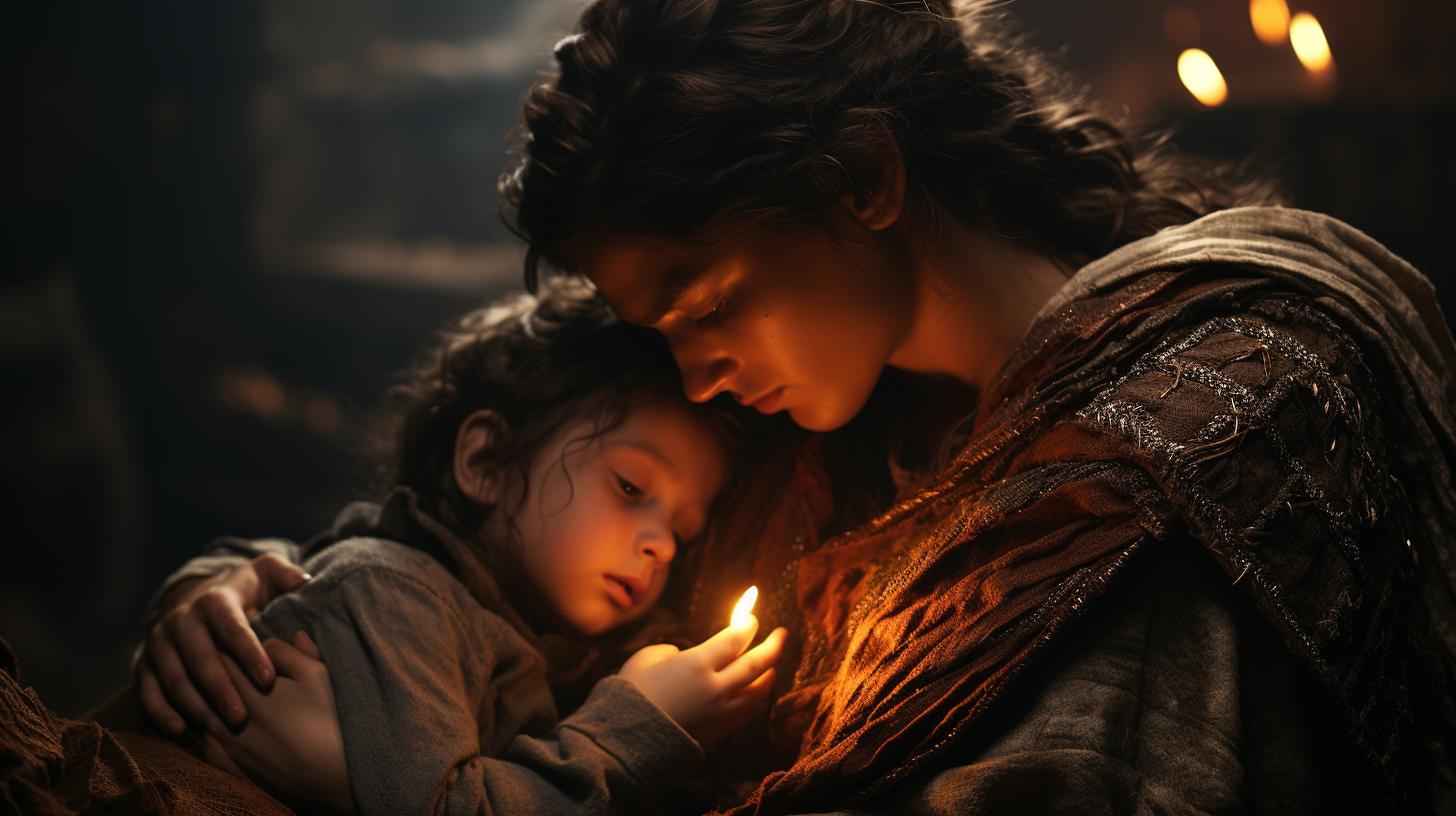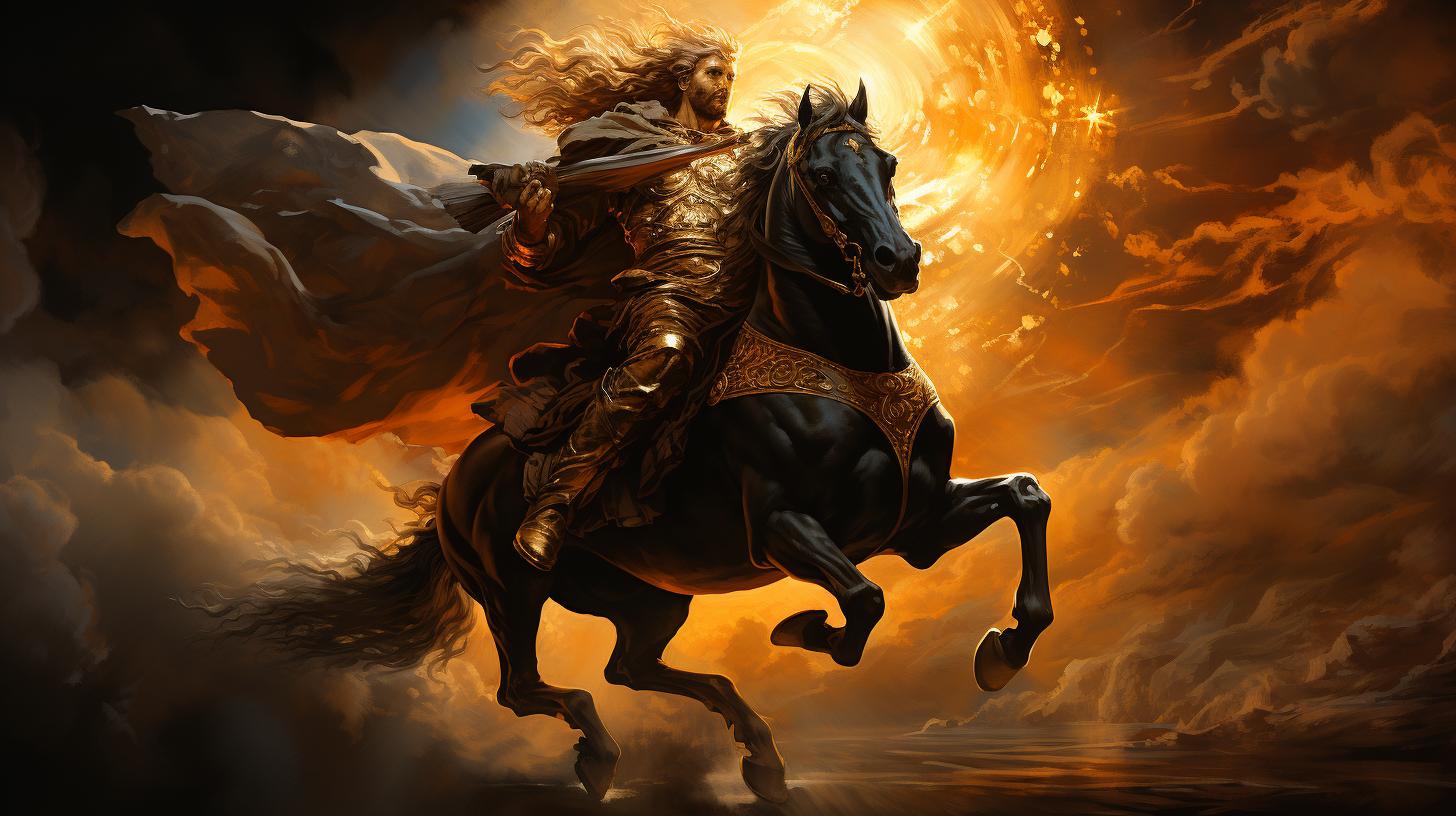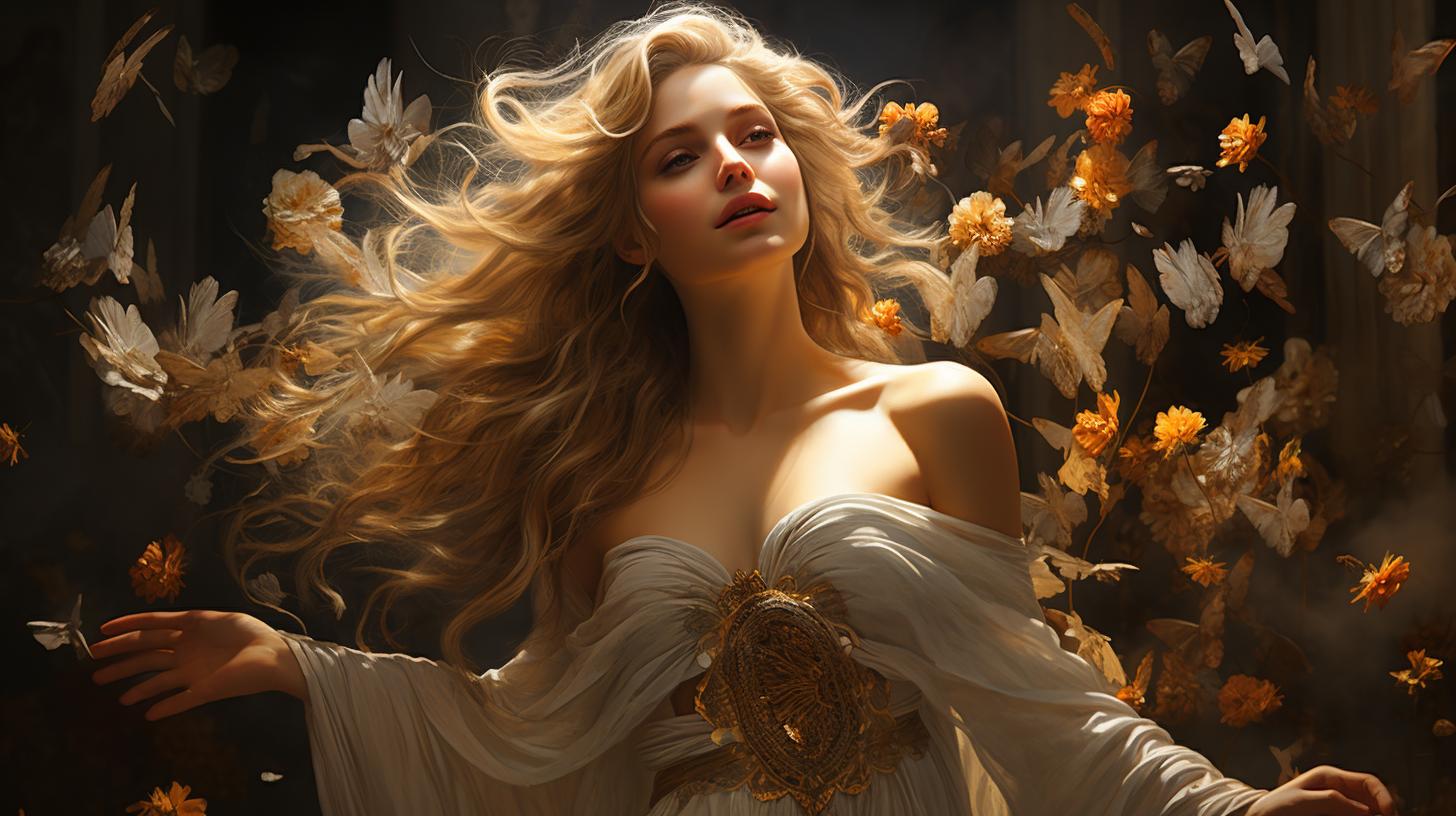Nyx Greek Goddess of the Night: An Intriguing Mythology Behind the Dark Deity
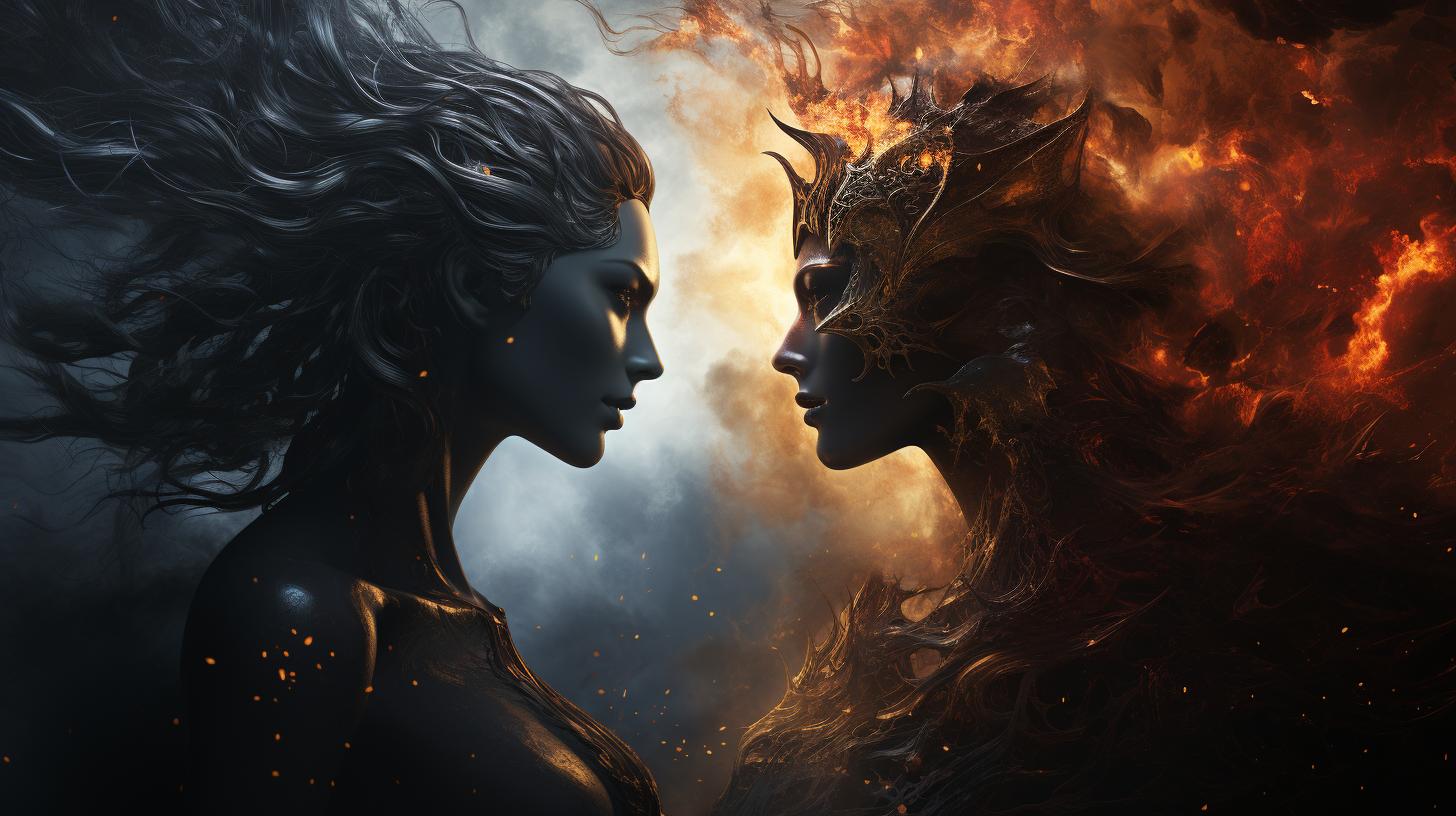
Nyx, the Greek goddess of the night, holds a prominent place in Greek mythology. Born from Chaos and a mother to various primordial powers, she personifies the night and wields great influence.
Described as a winged goddess, Nyx drives a chariot pulled by horses, instilling fear even in Zeus himself. Her dwelling in the depths of the underworld is a realm of darkness and suffering.
Although not extensively worshipped, Nyx played a pivotal role in the oracles and aided her successors. This article explores Nyx’s genealogy, her role in mythology, her connections with Zeus, and her status in the Greek pantheon.
Family of Nyx
Parents of Nyx
Nyx, the Greek goddess of the night, is believed to be the daughter of Chaos. Born from the primordial void, Chaos, Nyx holds a prominent place in the genealogy of Greek deities.
With Chaos as her parent, Nyx embodies the primordial essence of darkness and is regarded as a powerful and mysterious force.
Children of Nyx
Nyx is known to be the mother of various significant powers in Greek mythology. Among her children are notable figures such as Hypnos, the god of sleep; Thanatos, the god of death; the Fates, known as the Parcas; Nemesis, the goddess of retribution; and Geras, the personification of old age.
Each of Nyx’s children holds a distinct role in the realms of mortality and the afterlife, adding to the complexity and depth of their mother’s legacy.
Nyx’s Place in Genealogy
Within the vast network of Greek deities, Nyx’s position in the genealogy reveals her significance.
As the daughter of Chaos and the mother of various primordial powers, Nyx links the forces of creation and destruction, embodying the essence of darkness and night. Her lineage connects her to the origins of the cosmos and underscores her role as a powerful and influential deity in Greek mythology.
Nyx in Mythology
In Greek mythology, Nyx plays a significant role as the personification of the night. She embodies the mysterious and dark hours, symbolizing the unseen and hidden aspects of existence.
Known as the primordial deity of darkness, Nyx holds immense power and influence in the divine realm.
Nyx’s Role as the Personification of the Night
Nyx is the embodiment of night itself, representing its enigmatic nature and all that occurs under its cover. She reigns over the nocturnal realms, overseeing the tranquility of sleep and the emergence of dreams.
Nyx holds immense control over the mysterious and unknown aspects of life, making her a deity of great intrigue among the ancient Greeks.
Nyx’s Appearance and Attributes
Depicted in various forms, Nyx often appears as a winged goddess. Her ominous presence is marked by an aura of dark mists enveloping her head, symbolizing the deep darkness that accompanies the night.
This imagery reflects her connection to the unseen and her ability to traverse the realms beyond mortal comprehension.
Nyx’s Chariot and Horses
Nyx is often depicted riding a magnificent chariot, pulled by powerful horses. This chariot represents her dominion over the night skies. With her chariot’s swift movements through the celestial realm, Nyx oversees the progression of night, ensuring the balance between light and dark in the cosmos.
Powers and Relationships of Nyx
- Nyx possesses immense power as the mother of several primordial forces. Her children include Sleep, Death, the Fates (or Parcae), Nemesis, and Old Age. These offspring play crucial roles in shaping the destinies of mortals and gods alike.
- As a primordial goddess, Nyx holds immense influence over the operations of the cosmos.
Her deep understanding of the mysterious and unknown aspects of existence grants her the ability to provide oracular guidance to her successors.
- Nyx’s presence evokes fear even in powerful deities like Zeus. Her foreboding aura and connection to the darkness make her a force to be reckoned with, influencing the actions and decisions of other gods and goddesses.
Nyx and Zeus
Zeus, the king of the gods in Greek mythology, held a deep fear and reverence for Nyx, the goddess of the night.
Nyx’s immense power and ability to bring darkness and chaos made her a force to be reckoned with, even for Zeus.
Zeus’s Fear of Nyx
Despite his strength and dominion over the heavens, Zeus knew that Nyx held a power that surpassed his own. He understood that the night, personified by Nyx, had the ability to cloak the world in dark mystery and uncertainty.
This fear of the night and its potential to undermine his authority drove Zeus to respect and fear Nyx.
Nyx’s Influence on Zeus
Nyx’s influence on Zeus extended beyond fear. As the goddess of the night, Nyx had the power to affect even the mightiest of gods. She could shroud Zeus’s plans and actions in secrecy, making it difficult for mortals and other deities to decipher his intentions.
Nyx’s enigmatic nature and her connection to darkness granted her the ability to shape events and manipulate the outcomes that unfolded under the cover of night.
Furthermore, Nyx’s counsel and wisdom were sought by Zeus himself.
As the king of the gods, Zeus recognized the value of Nyx’s advice, particularly when it came to matters that required careful planning and strategizing. Nyx’s oracular gifts provided Zeus with insights and foresight, enabling him to navigate the vast complexities of divine politics and the shifting tides of fate.
In the realm of Greek mythology, the dynamic between Nyx and Zeus illustrates the awe-inspiring power wielded by the goddess of the night. While Zeus ruled the heavens during the day, he acknowledged that Nyx’s dominion over the night was an equal force to be respected and carefully considered.
Nyx in the Greek Pantheon
Nyx, the Greek goddess of the night, holds a significant place in the intricate tapestry of the Greek pantheon. Her relationships with other gods and goddesses, her worship and cults, and her influence on other deities showcase her importance in Greek mythology.
Nyx’s Relationships with Other Gods and Goddesses
Within the pantheon, Nyx maintained complex relationships with various divinities. As the mother of several primordial powers, including the Sleep, Death, Fates, Nemesis, and Age, she exerted a profound influence over the domain of darkness and its related aspects.
Her intricate connections intertwined with the intricate workings of the gods and goddesses.
Children of Nyx
- Hypnos: The god of sleep, Hypnos was Nyx’s son and played a vital role in Greek mythology, often working alongside his brother Thanatos, the personification of death.
- Thanatos: Known as the bringer of peaceful death, Thanatos was Nyx’s son and complemented the fearsome power of his mother.
- Moirai (The Fates): Nyx gave birth to the three Moirai, the sisters who controlled destiny and weaved the threads of life.
- Nemesis: Nyx was the mother of Nemesis, the goddess of retribution and vengeance, who maintained balance and justice in the mortal world.
- Geras: Geras, the personification of old age, was Nyx’s child, accentuating the transient nature of human existence.
Nyx’s Worship and Cults
Although Nyx was not widely worshipped as a central deity, she received reverence within the context of other gods and goddesses.
Her influential presence and embodiment of darkness made her an important figure in certain cults and religious practices.
Cults Honoring Nyx
- Cult of Artemis: Nyx was honored as an aspect of Artemis, the goddess of the hunt and the moon, with whom she shared common symbolism.
- Cult of Hecate: Nyx’s association with Hecate, the goddess of magic and crossroads, emphasized her connection to hidden realms and mysterious powers.
- Cult of Demeter: In certain agricultural cults, Nyx was revered as a representation of the dark and fertile earth, closely linked to the cycles of life and death.
Nyx’s Influence on Other Deities
Nyx’s powerful presence extended beyond her immediate family and cults.
Her influence seeped into the lives and actions of other Greek deities, impacting various aspects of their existence.
Influence on Zeus
Zeus, the king of the gods, held a profound fear of Nyx and her dominion over the night. The darkness and depth she embodied struck awe even in the mighty ruler of Olympus.
This fear influenced Zeus’s decisions and actions, as he respected and acknowledged the power Nyx held over the mortal world.
In conclusion, Nyx’s place in the Greek pantheon reveals her intricate relationships, her role in religious worship, and her profound influence on other deities.
Her connections with various gods and goddesses, the reverence she received in select cults, and her impact on Zeus showcase the multifaceted nature of this enigmatic and powerful goddess of the night.
References
Ancient Texts Mentioning Nyx
Ancient Greek texts provide valuable insights into the mythology and significance of Nyx, the Greek goddess of the night. Hesiod’s “Theogony” mentions Nyx as the offspring of Chaos and describes her as a powerful deity who brings forth various primordial powers.
The Orphic Rhapsodies refer to Nyx as the daughter and successor of Phanes, offering guidance to her successors through oracular gifts. These ancient texts emphasize Nyx’s role in shaping the cosmic order and her association with darkness and mystery.
Other notable ancient authors such as Homer, Pindar, and Ovid make references to Nyx in their works. Homer’s epic poems, the Iliad and the Odyssey, allude to Nyx as a force to be feared, even by the mighty Zeus. Pindar, the renowned Greek lyric poet, often mentions Nyx in the context of her relationship with other gods and goddesses.
Ovid’s “Metamorphoses” includes vivid descriptions of Nyx’s realm in the underworld and highlights her role in shaping the destinies of mortals.
Artistic Representations of Nyx
The artistic representations of Nyx in ancient Greece provide further insight into how she was perceived and revered. Greek pottery and sculptures depict Nyx in various forms, capturing her essence as the goddess of the night.
Often depicted with wings, she is portrayed with an aura of dark mist surrounding her head, symbolizing her connection to darkness and mystery.
Some artistic representations also showcase Nyx driving a chariot pulled by horses, signifying her role in traversing the night sky.
These depictions highlight her power and influence over the night and its associated powers, such as Sleep, Death, and the Fates. Through artistic mediums, Nyx’s enigmatic nature and her significance in Greek mythology are immortalized.
The art pieces that depict Nyx serve as a testament to her enduring presence and the reverence she received in ancient Greek culture. These artistic renderings provide visual interpretations of Nyx’s attributes and help to deepen our understanding of her role in the pantheon of Greek deities.
In conclusion, ancient texts and artistic representations offer valuable references to comprehend the significance of Nyx, the Greek goddess of the night. These sources shed light on her lineage, mythological role, and relationships with other deities.
The ancient texts depict Nyx as a powerful force with connections to primordial powers, while artistic representations provide visual interpretations of her enigmatic presence. Exploring these references allows us to delve deeper into the captivating world of Nyx and appreciate her enduring influence in Greek mythology.
.

